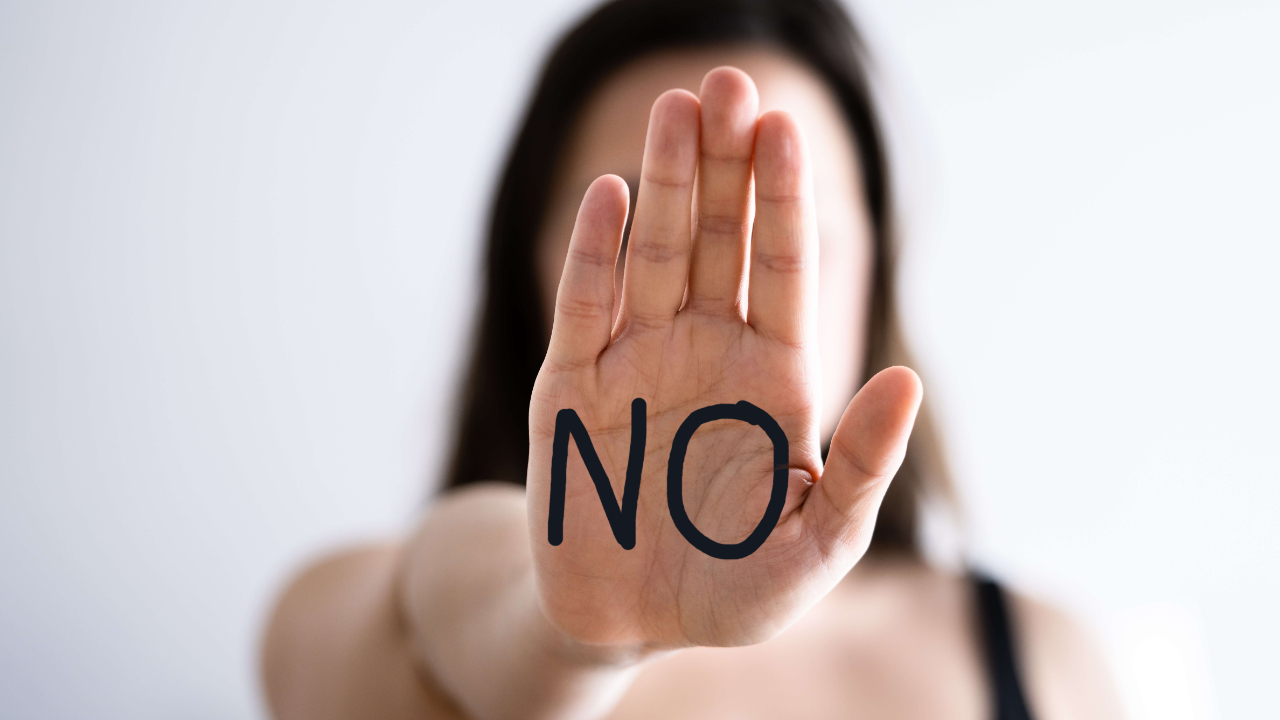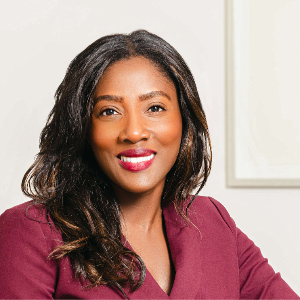
How to Say No Like a Boss (Without the Guilt)
Have you ever said, “Let me know if you need anything,” but didn’t mean it. Why do we tack this on at the end of conversations without thinking? A polite closing after someone has just unloaded their stress onto us. We feel obligated to offer something—anything—because that’s what good people do, right? But what happens when they actually take you up on it? Uh oh. You now have a request you had no intention of fulfilling, yet saying no doesn’t seem like an option.
For most of my life, I struggled with people-pleasing. It started early, with my well-intentioned grandmother drilling into me how important it was to be nice. My mother sent me off to sixth grade with a small gift for every student in my class—cute little trinkets like a pack of gum or a pencil case from Pic-N-Save (think of it like today’s Dollar Store). I gave gifts to kids I didn’t even like, because I had been taught that being liked meant being generous, being sweet, and above all, being accommodating.
As women, many of us have been conditioned to prioritize being agreeable. It’s ingrained in us from childhood—be nice, be polite, be helpful. But as we grow up, these well-meaning lessons turn into a chronic inability to say no.
When Yes Feels Like Obligation
I had a close friend, Cierra, who was the exact opposite of me. She loved to cook—I love to eat but stick to the basics. She makes her own butter, bread, and even cough syrup from scratch. Me? I happily let my husband, who can throw down in the kitchen, handle the cooking.
When she visited from Virginia, she arrived with arms full of Whole Foods bags, announcing that she was cooking for my family. Sweet, right? Except I never asked. Every morning, she was up at dawn, clattering pots and pans, whipping up elaborate meals I never requested. Then, she decided I needed to grow my own herbs. I politely told her I didn’t have the space, but that didn’t stop her. She went to the farmers market and returned with 15 herb plants, turning my sleek, modern kitchen into a full-blown garden center.
I was frustrated. She wasn’t listening to me—she was pushing her lifestyle onto mine. Instead of spending time doing the things we used to love—hiking, grabbing boba—her visit became a cooking show I didn’t sign up for. And I let it happen. I should have said no.
Why We Struggle to Say No
We’re wimps – okay a little harsh. We’ve been conditioned. We think saying yes will keep the peace and make us look good. But the reality? We feel resentful. We feel frustrated, depleted, and annoyed—not just at the person who asked, but at ourselves for not standing our ground.
Saying no, on the other hand, isn’t easy. I love listening to the podcast Hidden Brain. I remember Psychologist Vanessa Patrick, explaining why we struggle so much with this. Vanessa explained we can’t get the “no” out for a few key reasons:
- The Social Expectation to Say Yes
We are wired for social connection, and saying yes feels like the glue that holds relationships together. When someone asks for a favor, it’s almost expected that we’ll comply. Saying no, by contrast, is what Patrick calls “the socially dispreferred response.” We fear that rejecting a request will make us seem cold, unhelpful, or even unlikable.
- The “Acquaintance Trap”
Oddly enough, we often find it easier to say no to strangers or close friends than to people in that murky in-between—colleagues, casual friends, neighbors. Patrick calls this the acquaintance trap. These relationships feel fragile, and we worry that saying no will damage them. So, we say yes, even when it inconveniences us.
- The Fear of Damaging Our Reputation
Especially in professional settings, women often feel pressured to say yes to maintain a certain image. We want to be seen as warm, capable, and competent. Saying no, we fear, could signal that we can’t juggle responsibilities as effortlessly as we’re expected to.
- The Stadium Proposal Effect
Ever watched a stadium proposal at a sports event? A man gets down on one knee, and suddenly, all eyes are on the woman. The pressure to say yes is crazy—after all, thousands of people are literally watching. Patrick argues that we experience mini stadium proposal moments all the time. When someone asks us for a favor in a public setting, it feels like everyone is watching—waiting for us to say yes. Even if they’re not.
How to Say No Without Guilt
Ladies, we have to stop this insanity. Say it with me: Nooooo! (Okay, maybe don’t drag it out like that, but seriously, practice saying it out loud.) We must. For our own peace of mind.
Here’s how to start reclaiming boundaries without feeling guilty:
- Use “I don’t” instead of “I can’t.”
Studies show that saying “I don’t do that” instead of “I can’t” makes refusals feel firmer and more self-assured. Try: - “I can’t take on extra work right now.” → “I don’t take on extra projects outside my workload.”
- Pause Before Responding
When someone asks for a favor, don’t answer immediately. And I know this is hard. Just saying, “Let me think about it and get back to you” gives you space to evaluate if you genuinely want to say yes. - Set Boundaries with Acquaintances
Recognize the acquaintance trap and remind yourself that saying no to a casual colleague or neighbor doesn’t mean they’ll cut you off. If anything, it sets the tone for a relationship built on mutual respect. - Accept That Some People Won’t Like It
Not everyone will be thrilled when you start asserting yourself. And that’s okay. People who truly respect you will respect your boundaries, too.
The Bottom Line
Saying no is about protecting your time and your peace. Women have been taught for too long that their worth is tied to their willingness to accommodate others. But real confidence, real empowerment, comes from standing in your truth.
So next time you feel the weight of a stadium proposal moment, remember: your value is not determined by how often you say yes. Your value is in your ability to choose what aligns with your needs, your priorities, and your well-being.
And if that means saying no? Then say it—without apology.
At I Can't Sleep, we talk about the things that keep women up at night—overcommitment, stress, expectations, and the endless mental to-do list. Learning to say no is just one step toward reclaiming your time, your energy, and yes, even a good night’s sleep. Ready to start putting yourself first? You’re in the right place.

